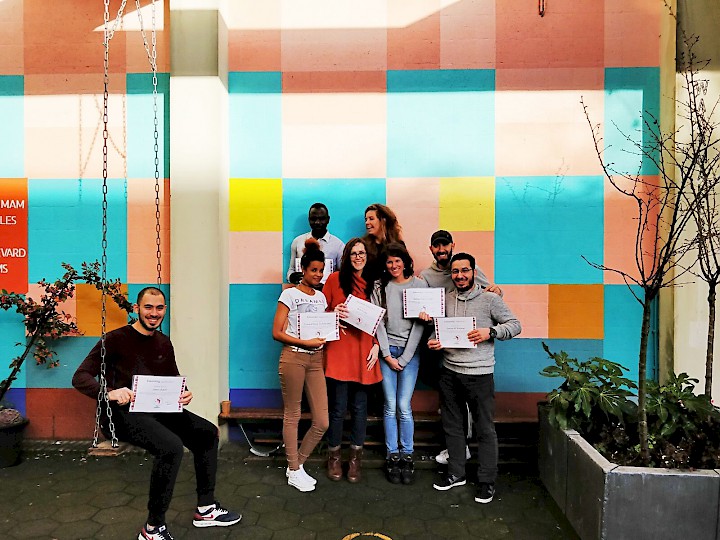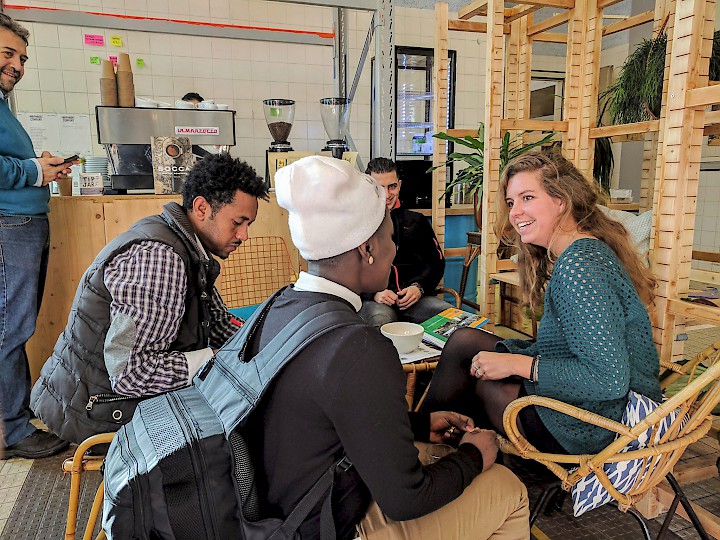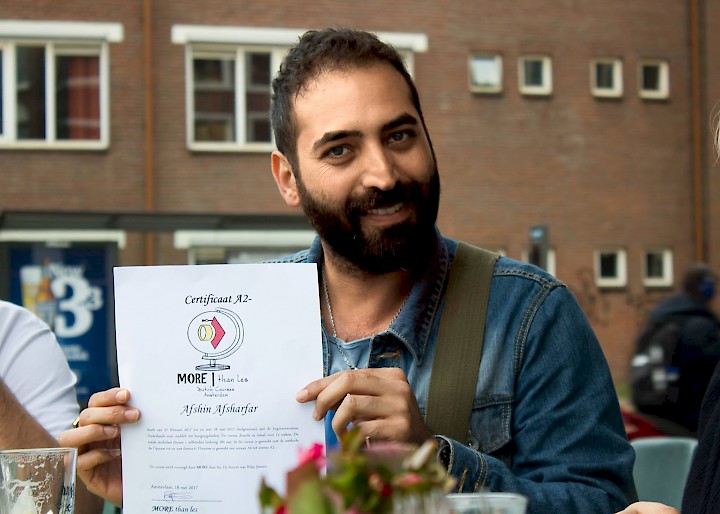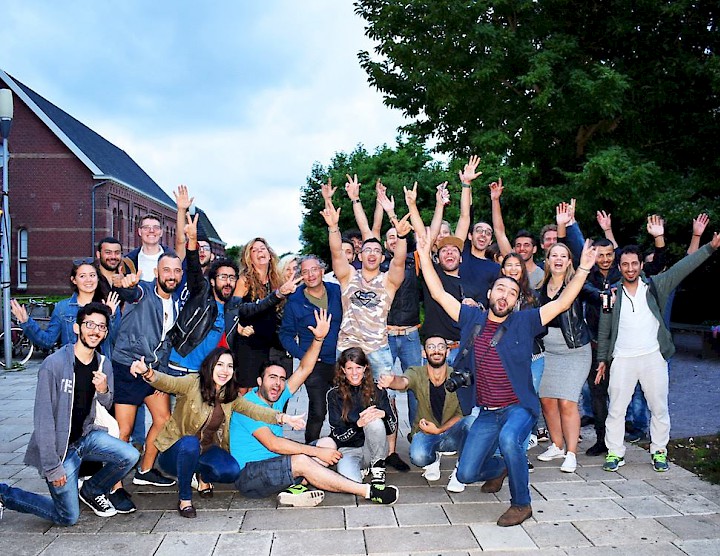more than les
Deprecated: preg_split(): Passing null to parameter #3 ($limit) of type int is deprecated in /domains/lolalik.nl/DEFAULT/site/modules/TextformatterTextile/src/Parser.php on line 2227
“I think when you learn the language you get an insight into Dutch culture and society,” muses Noémie Winkel, an 27-year-old from Amsterdam. “Otherwise you are always the outsider, even though we all speak English. That’s true everywhere: if you speak the language immediately you are a part of the group way more than if you don’t.”
It was this attitude that led Winkel to set up More than Les, a Dutch language school with a difference based in Lola Lik cultural hub. With small classes, intensive timetables, super passionate teachers, and an emphasis on real-life situation, Winkel aims to not just teach Dutch, but also help her students find their way around Amsterdam.
“I try to tell the students where they can go for a nice drink, or a good restaurant or cultural events,” she explains. “And they really love it because they get an insight into what’s going on in Amsterdam.” This is particularly useful for those of her students who are refugees and are trying to build a whole new life from scratch. “As someone who needs to integrate, it can be easy to stick to your own bubble,” she adds. “I try to give a little insight into the other bubbles, the Dutch Amsterdam things to do. For example, how to find a basketball court where you don’t have to pay or maybe they are looking for an internship and I try to connect them with someone who can help.”
One of her students, Abdullah Al-Ahmad, has been taking classes with More than Les for eight months. In January, he will start his B2 level course, an impressive achievement given that when he first arrived as a refugee in the Netherlands in October 2015 he didn’t speak a word of Dutch. Ahmad, 26, puts his interest in it down to his university degree in Aleppo, his hometown. “I think after studying English [literature and language] I started to have an interest in languages,” he says. “I’m really curious. I want to know where I am, to understand what’s happening here. You need to know the language to know the people. And also I want to know if they are gossiping about me,” he adds with a laugh.
He came across More than Les in a roundabout way. While waiting for permission to stay in the country, he was moved through seven different camps in eight months. He wanted to be useful, but there was nothing to do in any of the camps, so instead of going stir-crazy, he posted on Facebook offering his services to anyone needing any help with small tasks. Instantly, people started contacting him and for the next few months he was completely booked up painting walls, fixing boats and doing gardening for strangers.
One of those strangers became a close friend, and when Ahmad said he was looking to learn Dutch, she suggested More than Les. Ahmad got in touch with Winkel, joined a class, and immediately felt at home. “They care about me and about the others, so it feels like being part of a family, not a boring school obligation,” he says. “Also they discuss things with you, they don’t just tell you: ‘This is our course and this is how it goes.’” This is exactly how Winkel wants the classes to be. “More than Les means more ‘More than a Class’,” she explains. “I try to guide people, but I also let people guide me. I think one of the nicest things about the school is that the students learn so much from the teachers but the teachers also learn so much from the students. It’s anything but a one-way process.”
Winkel came up with the idea while helping out refugees – mostly Syrian – who were arriving at Amsterdam Central Station with nothing but the clothes on their backs. Many had come via the perilous boat ride from Turkey to Greece followed by a gruelling journey across Eastern and Central Europe. “I did that for more or less half a year every evening, going there [to the station] to help and coordinate other volunteers,” she explains. “I kept in contact with a lot of the Syrians to see whether they got their status and so on. I heard from them about the big classes of their Dutch classes and how there were lots of people of different levels.”
Winkel had just finished her masters in international development studies and already had some experience teaching Dutch to foreigners via her mother’s work. At the same time, she heard about Lola Lik and their offer of cheap space for projects focused on helping refugees integrate. “I was like, this is what I’m going to do!” she recalls. “Smaller classes with a community feeling that are more like a family. I wanted to provide people with a network as well, and put lots of focus on conversation.”
She gathered a group of spunky teachers interested in doing something a bit different, and threw her all into it. By March the school was up and running and More than Les was officially born. Since then it has gone from strength to strength, and boasts a uniquely familiar atmosphere. “I think the students are all my friends now,” she laughs. “I see them outside school and they hang out with my friends and family.”
Ahmad, one of the students she is closest to, now lives in Zaandam and works with Newest Art Organization, a platform for elevating art by refugees and aiding integration, and also gives tours of the Aleppo exhibition at the Tropen Museum. He is planning to go back to university to get a Dutch bachelors in English language and culture but isn’t sure what exactly he’ll do after that. For the moment, he is focused on settling into his new life. “It’s not really easy, but that’s not because anyone is making it difficult, it’s just that it’s a foreign country with a different culture and language,” he explains. “Dutch people are good at helping with the process of integration, but nothing is 100 percent easy.”
One thing that has helped is discovering Lola Lik. After his Dutch classes, Ahmad regularly hangs out in A Beautiful Mess restaurant, or in the open-air courtyard or the canteen area. “I got to know so many people at Lola in general, mostly Syrians, but also many others,” he says. “Here in Lola there is life. There are people from all ages and lots of activities, so you can learn the language doing other things. It’s a good combination.”



